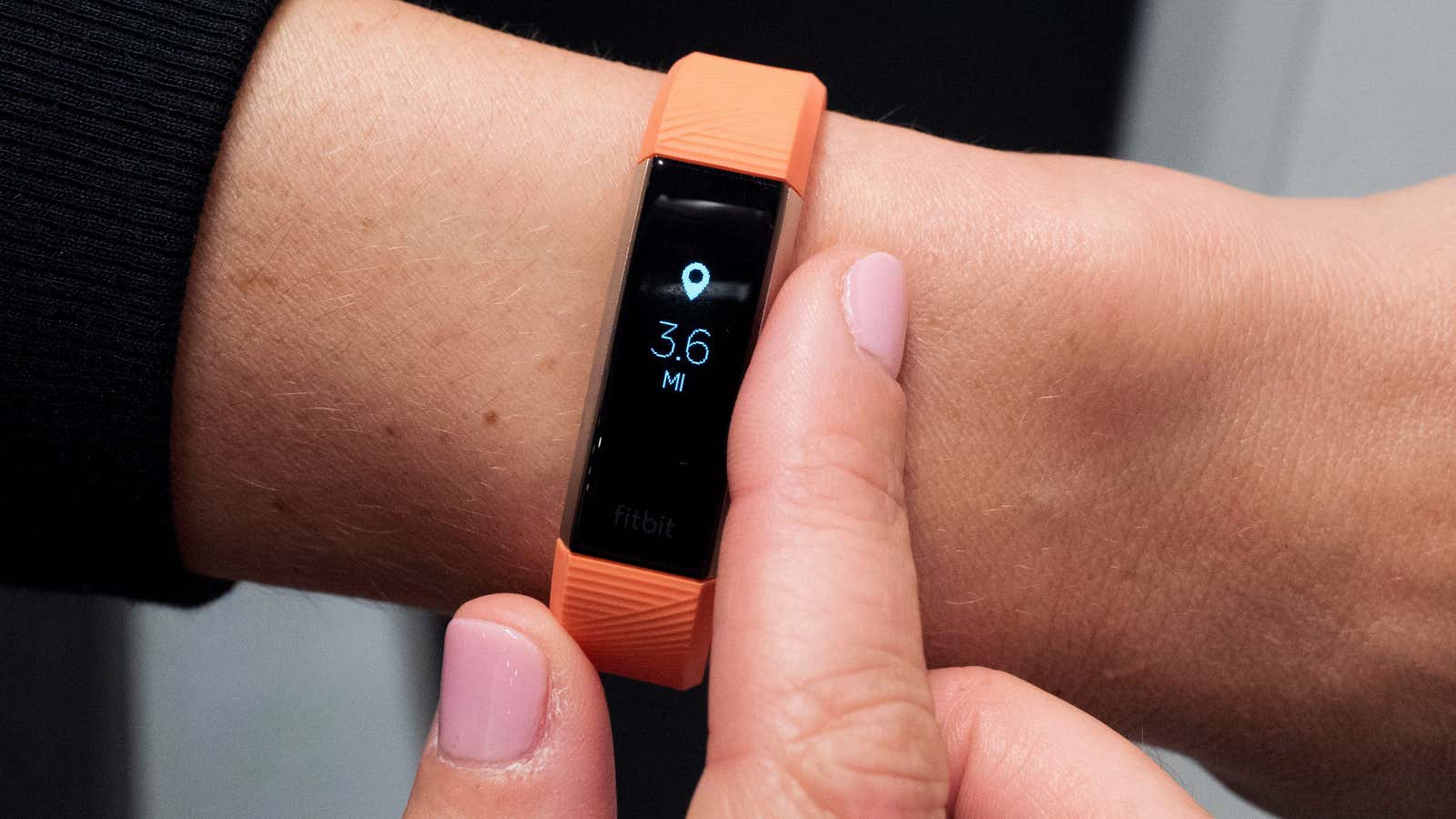Insurance giant John Hancock is trying to track its customers’ health more intimately than ever before. The firm will now only sell life insurance plans where customers have the option of paying less on premiums by exercising regularly and having that activity tracked via wearables.
Promoting healthy habits is in John Hancock’s best interests: The longer its customers live on average, the more premiums are collected and the longer before it has to pay out claims. As an incentive for customers who may not be motivated to exercise by the idea of living longer, John Hancock is also offering lower premiums, as well as discounts and coupons for other companies, like Hotels.com.
John Hancock has offered plans with the fitness tracking option since 2015, CEO Marianne Harrison told Quartz, and has already provided more than $2 million in rewards from other companies. The insurance company also offers financing for wearables such as the Apple Watch and Fitbits. If a customer hits her exercise goals consistently, she can get the wearable for free, but if she falls short, the payments for the device scale up to $15 a month.
In exchange for the discounts and nudges to better health, customers are giving the company nearly complete access to their health data. If customers want the rewards but to forgo the wearable for a few days, they have to use their phone’s GPS to verify they’re at the gym to clock exercise or get an exercise report from the gym.
John Hancock confirmed to Quartz that it won’t sell the data to third parties, and Harrison said customers don’t tend to worry about the privacy aspect, as John Hancock has held sensitive medical data for its entire 150-year lifespan. Even so, customers can be choosy about some of the data they upload.
“If you want to give us your daily exercise data, you can do that, but if you don’t want to upload data from your medical appointments, you don’t have to,” Harrison said.
John Hancock isn’t the only company to try this plan, though it is among the first to chain itself to the consumer wearable market. Companies such as United Healthcare and startup Oscar also offer coupons and vouchers for hitting fitness goals. But activists have warned that gamifying insurance can exclude and raise prices for those with medical conditions where it’s difficult to move, those with severe depression, and those without the means to afford smartphones to track the progress.
However, John Hancock’s program does offer bigger discounts for those paying higher premiums due to health issues. An example offered to the New York Times was $300 off a $2,000 premium for someone with health problems who hits their fitness goals, compared to $120 off an $800 premium for healthier people.
Lila MacLellan contributed reporting to this story.
